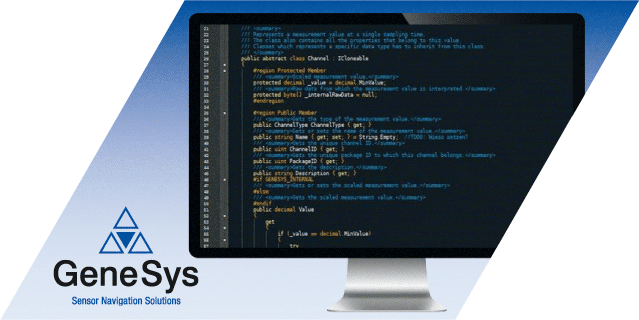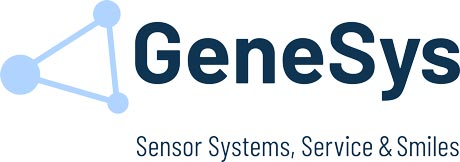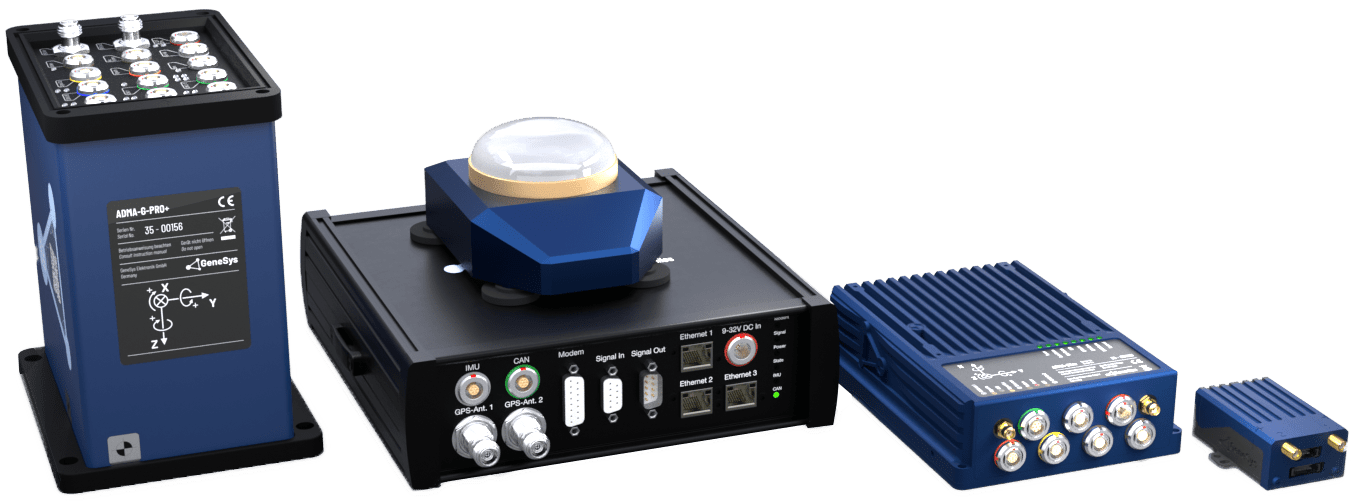The Offenburg-based engineering company GeneSys Elektronik specialises in the development and manufacture of high-precision sensor systems. These are mainly used in the automotive sector for vehicle dynamics and advanced driver assistance measurements.
With the Automotive Dynamic Motion Analyzer, ADMA for short, all motion states such as acceleration, velocity, position, angular rates, orientation- and sideslip angle of the vehicle can be acquired with high precision under motion.

Numerous cooperations make software and hardware solutions – depending on the application – available to GeneSys customers. For the acquisition and evaluation of synchronous ADMA measurement data, customers can rely on numerous software solutions such as decoders, drivers or program libraries.
ADMA Decoder Vector CANape
Among other things, CANape acquires measurement data from much common high-resolution radar, video, and LIDAR sensor components such as IBEO HAD, Quanergy or Velodyne, and μEye cameras and other cameras that have a DirectX driver. Thanks to the CANape Protocol Decoder ADMA 3.0 implemented by Vector, the GNSS-based inertial system from GeneSys can now also be used as a reference system, representing all high-precision inertial measurement units used specifically for ADAS development and autonomous driving.
All ADMA measurement data of several connected vehicles can be acquired via Ethernet interface and offset against each other – fully synchronized and in real-time.
ROS driver
Robot Operating System (ROS) is a modular framework for industrial robotics. ROS is an open-source project and is published under the BSD license. The automotive industry uses the functions for sensor processing, evaluation, planning, and control. As a result, ROS is being used more frequently in the field of autonomous driving.
With the ADMA-ROS driver, the ADMA measurement data can be acquired via Ethernet and thus used for automation control.
Data Reader Library
The GeneSys Data Reader Library is a programming interface for linking the ADMA Ethernet data output in proprietary software solutions. Research and development use the ADMA Data Reader Library to realize online data acquisition or to post-process and analyze ADMA measurement data.
All Ethernet data formats (ADMAnet, RAW Data, DELTA Data, Braking Data, Robot Data) of an ADMA can be interpreted online with .Net C# DLL. (Binary) measurement data already recorded with the GeneSys Ethernet logger, for example, can thus also be decoded in the postprocessing. This integration is particularly useful for data analysis. For example, MATLAB or similar software solutions provide a .NET interface.
Plug-ins
Numerous data acquisition systems enable a fully synchronized acquisition, storage, and visualization of measurement data from different interfaces. The supported interfaces include analog, digital, counter and encoder data as well as camera data, odometry, and vehicle bus systems.
Thanks to the implemented ADMA plug-ins, the inertial measurement unit ADMA from GeneSys can be used as a reference system for vehicle dynamics and advanced driver assistance systems.
The ADMA plug-in enables the acquisition of measurement data such as ADMAnet data. With the help of the plug-in within the data acquisition systems – such as those from Dewesoft or Dewetron – the ADMA can also be used as a clock master as well as realize software synchronization of other hardware components.



